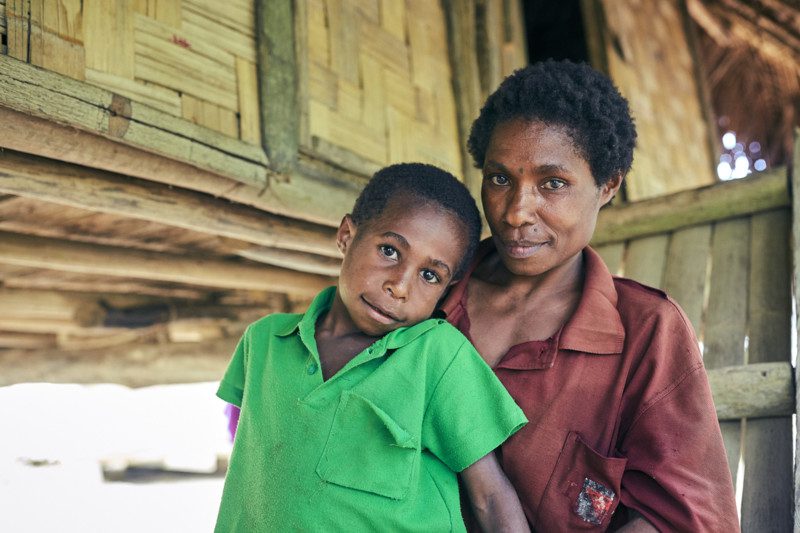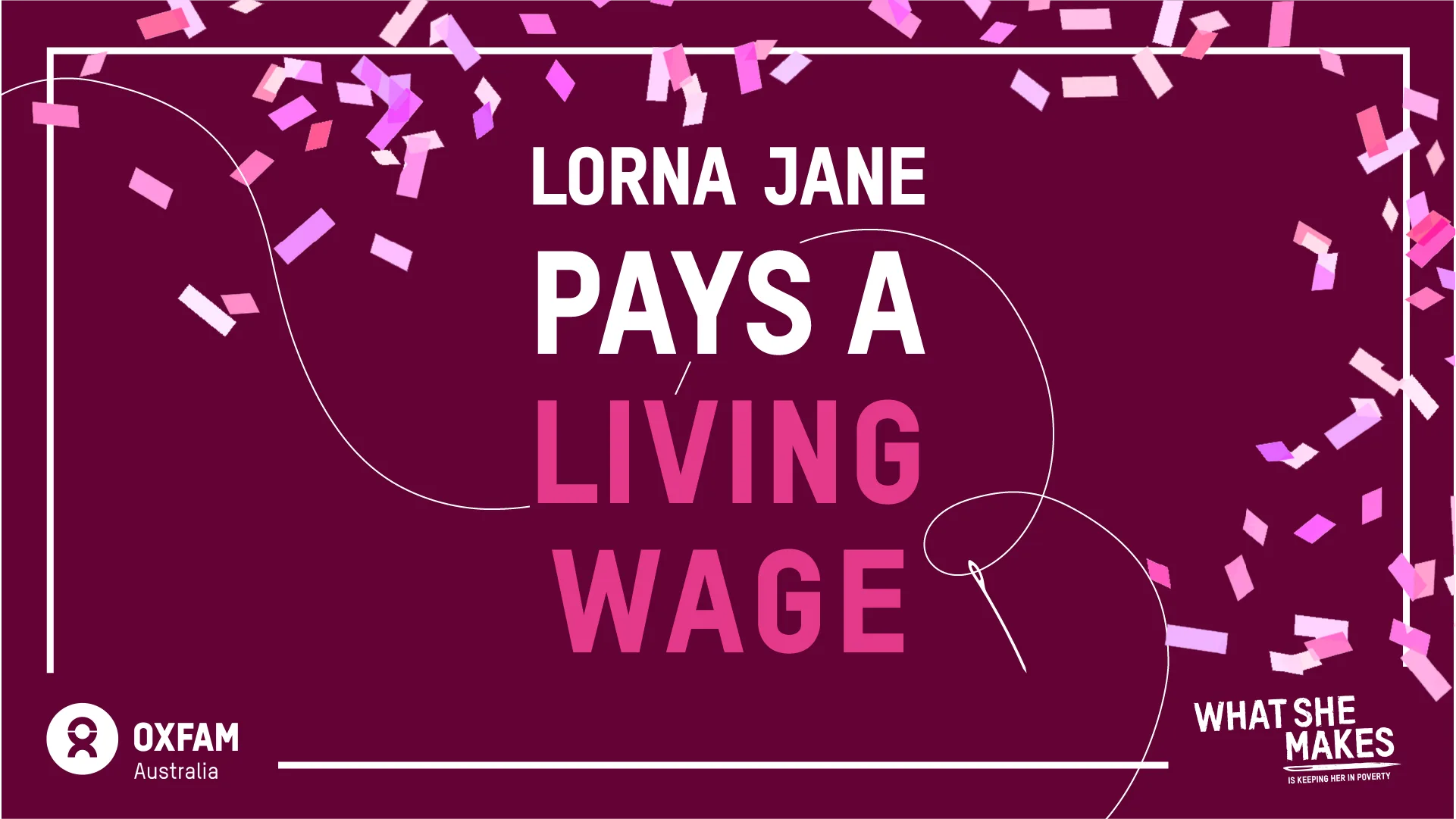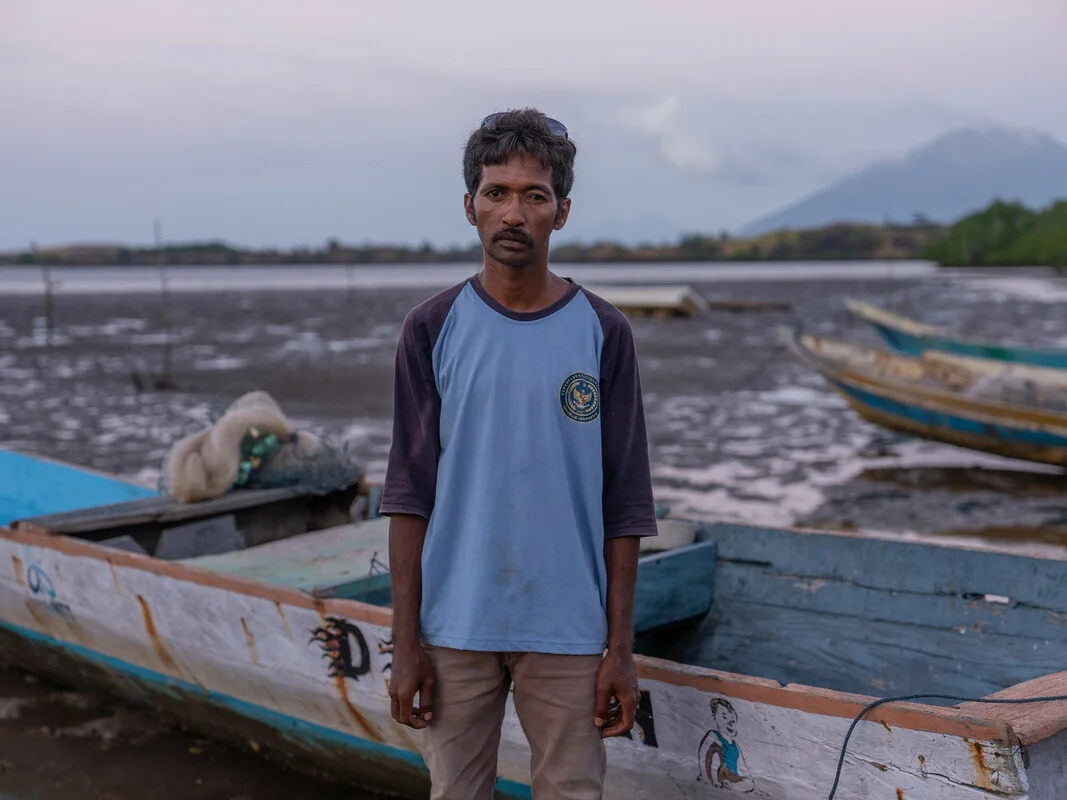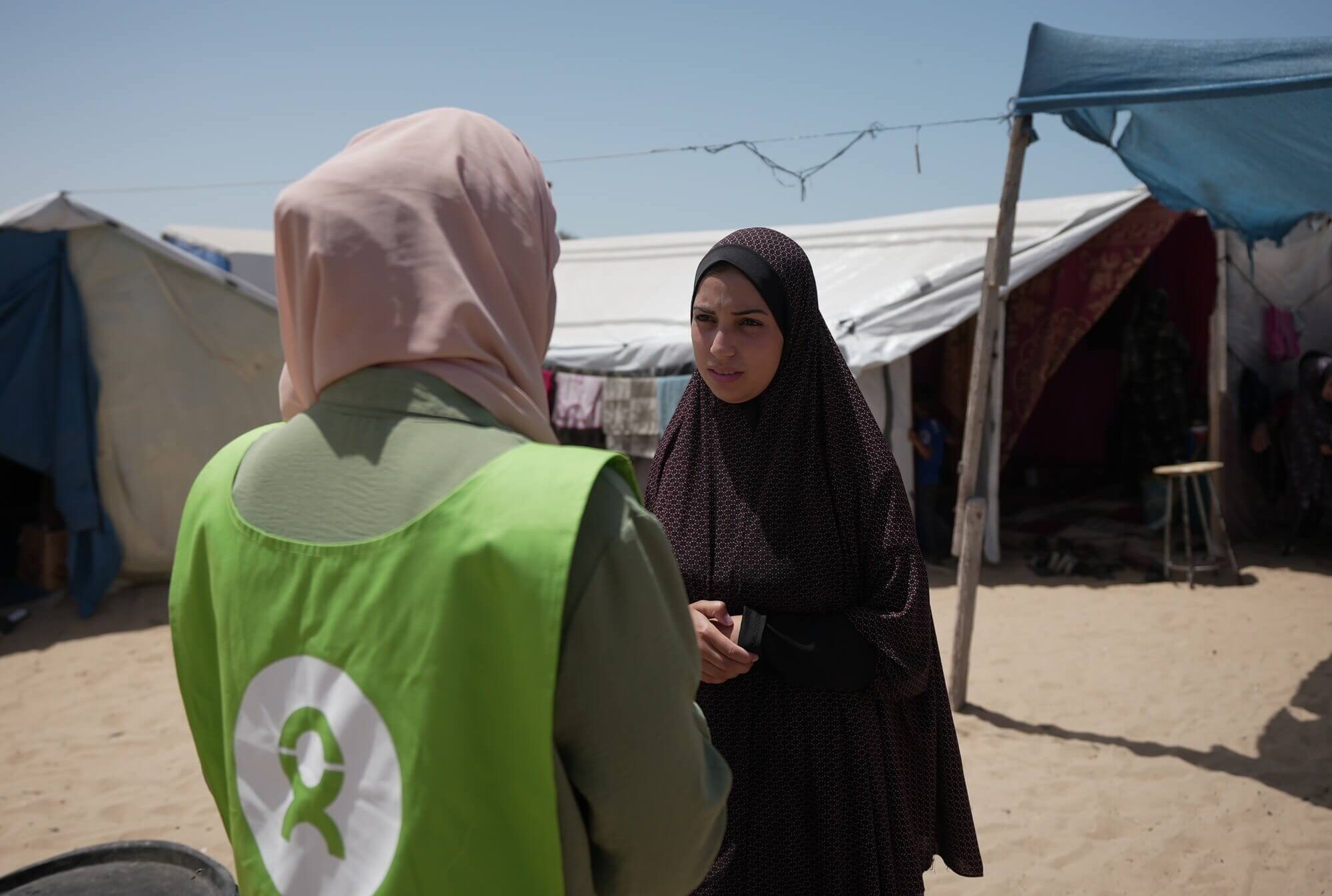“When Oxfam came in to this community and set up the water taps, all the mothers have felt relief. All of the pain that they have been going through, they will not go through it again.”
The pain that Nola describes is hard for most Australian mothers to imagine. Here in Australia, the average family uses hundreds litres of water per day, without thinking twice.
But in Nola’s village in Wewak, Papua New Guinea, clean water was dangerously scarce before Oxfam installed a new water supply system for the community.
“Each day I would go up to six times to collect water,” she explains. “It depended on how much I needed in the house for cooking, cleaning and drinking.”
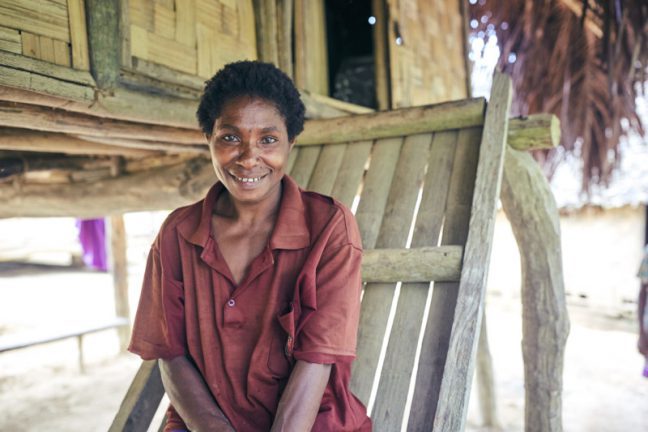
Now that the water is here in the village, all this pain that we mothers were feeling has stopped. Our life has been uplifted because we no longer have to travel for miles and miles to collect water.”
— Nola, Papua New Guinea
Without access to clean water, childbirth used to be a precarious experience for the women in Nola’s village.
“The clinic is far away from here and we have to take water with us if we were going to have a baby,” Nola explains. “There is no water where the clinic is — so [we] collect the water from here and take it with us to give birth.”
“When mothers in the community are trying to give birth and can feel contractions, we call the ambulance. When the ambulance doesn’t come, the mothers run down to the river to collect buckets of water to help deliver the baby here in the village.”
The risks of delivering children in the village, without proper medical facilities, can be grave.
“[The ambulance] doesn’t come very often” Nola says. “They only come when there is money involved. If there is no payment for the fuel or the drivers, they won’t come. So there are a lot of mothers who die in childbirth.”
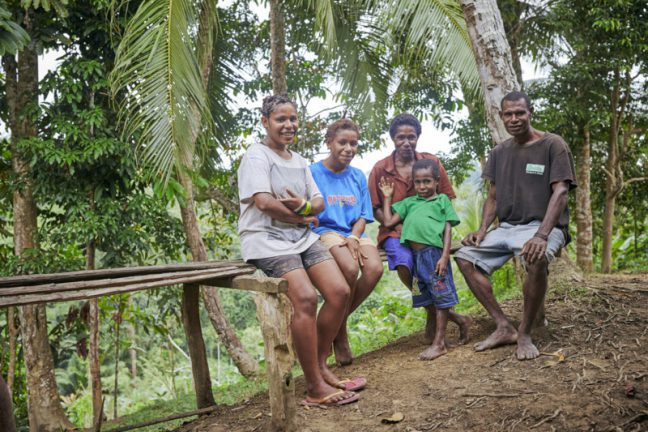
But these days, Nola has clean water at her doorstep. The new water system has improved access to clean, safe water for 4,500 people, across 11 villages. Instead of walking for hours to collect dirty water, families can now access water from tap stands outside their homes.
“Now, the mothers can go near to the house to fetch water and wash with soap easily and then come back into the house,” Nola says. “It has helped with hygiene — we can wash clothes, cook food, drink clean water and even our children can be washed every day.”
“When we drank water from the river, some children experienced diarrhoea.
“We are drinking clean water now, so we are all healthy.”
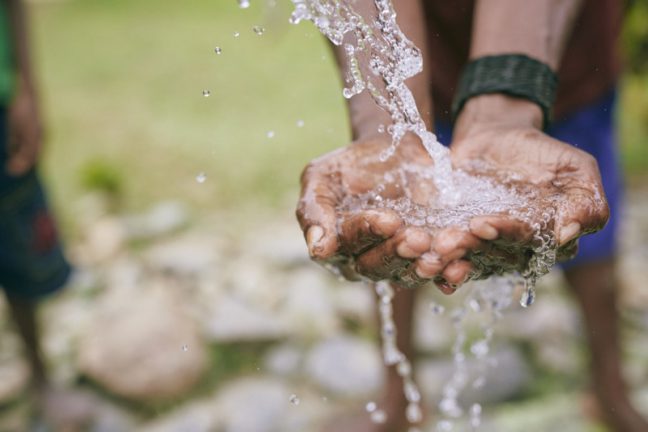
“The children are healthier because of the clean water.”
“It’s a relief for the mothers. Every single day we would have to collect water for the household.”
“We would be stressed about collecting water all the time, thinking about our kids and our family.”
Before the water supply was installed here, our kids were always dirty when they went to school because the water was too far from our houses.”
— Nola, Papua New Guinea
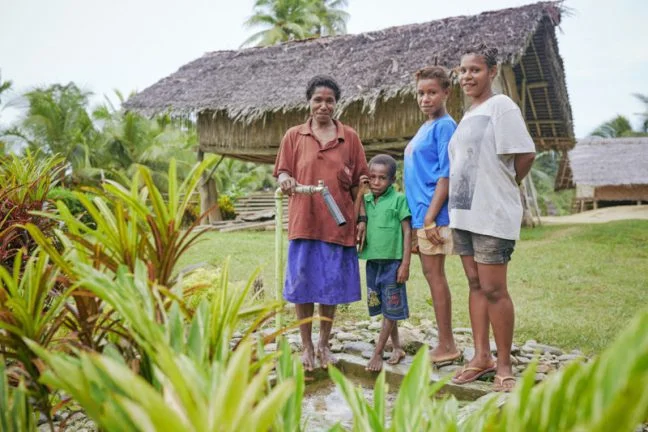
“Now, they can just grab their towel and go to the tap stand, wash, come back and then get to school on time,” she says.
“Also, it benefits their health. Before, they didn’t look like this, clean and fresh. The water has changed them.”
“We are more than relieved, we are so happy now,” Nola adds. “We feel like the burden has gone because of the water supply. Some people might think that it is not important but, for mothers, it means a lot.”
For generations, the lethal combination of dirty water, poor sanitation and unsafe hygiene practices has exacerbated poverty and made life incredibly hard for women like Nola and their families. But Oxfam is committed to improving access to clean water and hygienic sanitation infrastructure for families in Papua New Guinea — and around the world.
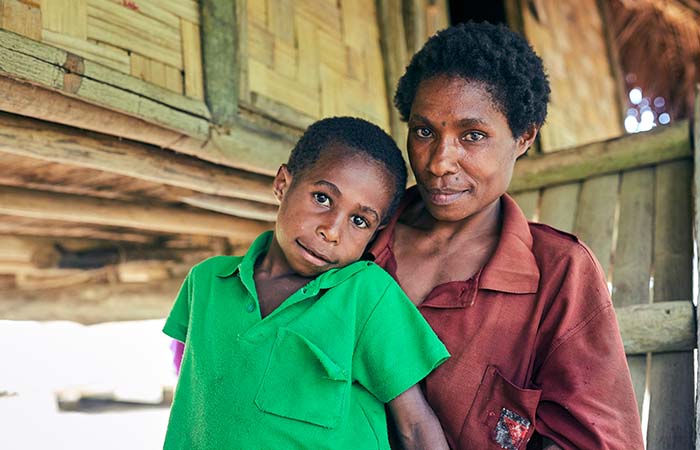
Donate now to support Oxfam Australia’s work in PNG
Your gift will help Oxfam provide access to essential resources like clean water and sanitation to help people in countries like Papua New Guinea lead healthier, more productive lives.
